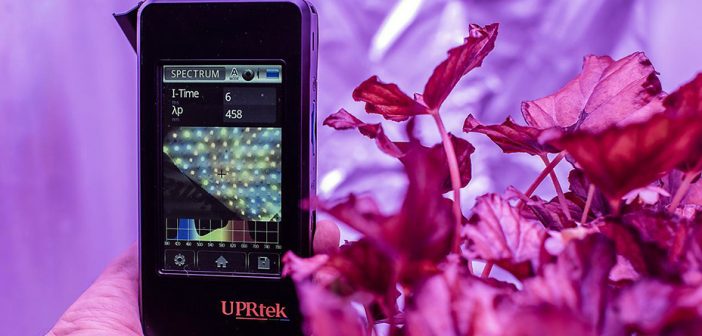Research supported by Agri-Tech Cornwall at the University of Plymouth has proposed using ‘factory conditions’ such as those achieved with indoor farming techniques as a way to protect crops from the negative impacts of climate change.
A new project, known as Plant Factory Cornwall, aims to use artificial lighting powered by solar energy to create the best possible conditions for fruit and vegetable production. The scientists believe it will reduce the stresses that plants face in normal conditions, while improving global food security and reducing food miles.
Professor of Plant Physiology Mick Fuller, an expert in the use of technology to improve crop production, said, “The positive health benefits of fruit and vegetables are well known, as is the need to double food production in order to meet the demands of a growing population. But how do you do that when climate change, as we have seen this summer, means we cannot rely on having the right conditions for crops to thrive every year? That is where facilities like the Plant Factory come in.”
The facility will be located on the University campus, within a multi-tier production unit constructed in partnership with Penzance-based company SolaGrow. According to the University, the solar-powered LED lights can be individually programmed to give a precise light recipe for each species.
Professor Fuller added, “In recent years many farmers have used redundant buildings or land to diversify away from farming. But this could offer them an affordable way to diversify back into crop production. There really is no limit to the size or scale of these facilities.”

Photo Caption: The project will monitor each plant’s responses to the lighting conditions.
Photo Credit: University of Plymouth
The post Scientists propose indoor farming to counter climate change appeared first on Hort News on 30 August 2018.